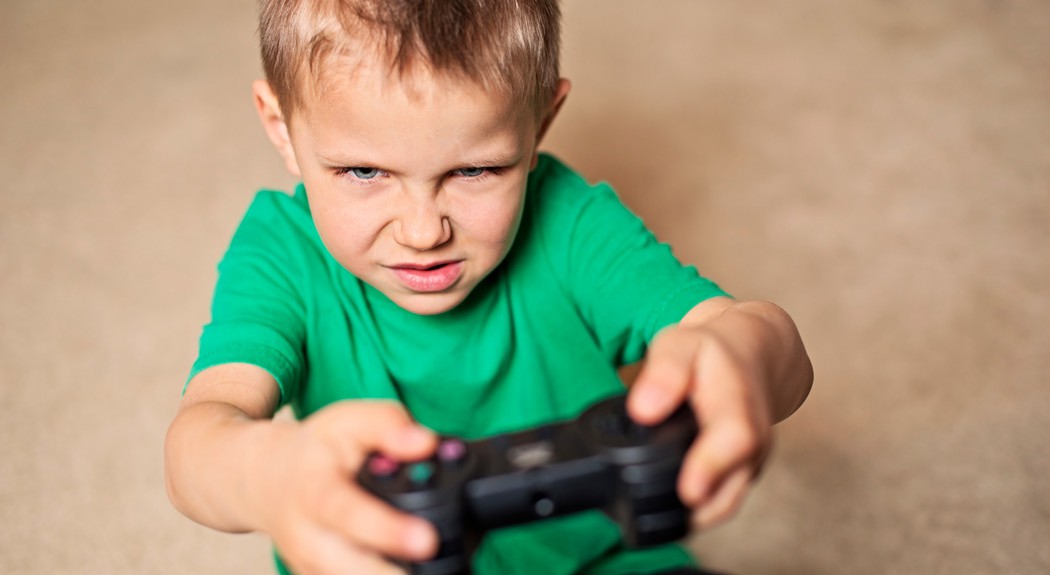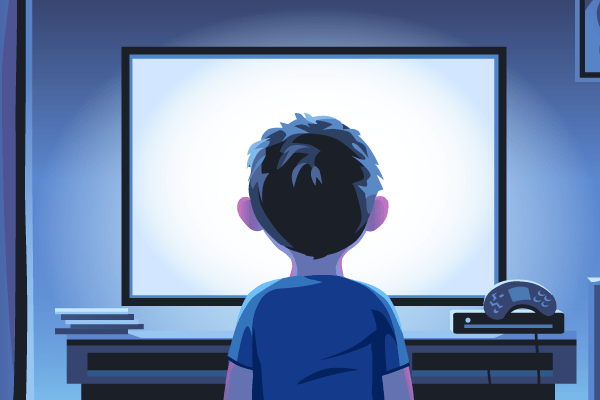Ever stretched out on the couch, gamepad in hand, and wondered if your mom’s dire warnings of becoming a violent criminal were about to come true? Well, rest easy because you might just be doing so on a bed of misconceptions. Welcome to the realm where we debunk, with gusto, the myths about our pixel-powered pastimes disgracefully shoved down our throats like two-week-old turkey leftovers!
Countless content around video game violence? The age-old tabloid fav! And, hey, whoever said that gamers are victims of social isolation probably thought the earth was flat too. Oh, and girls don’t play video games, they say. Guess someone didn’t get the memo; it’s not the 90s anymore. Let’s not forget the rather eloquent “video games are a waste of time” perspective which is hysterically old-school. And alas, the hullabaloo about gaming addiction. Well, about time someone took the glory away from alcohol, right? Buckle up, folks, as we dissect these fallacies like a newbie playing Operation, armed with a comprehensive hit-list of sarcasm-infused cannons, because knowledge is in session. Don’t forget to toast your marshmallows on the heat of these debunking flames! So, let’s dive straight into this pixelated battle against mass ignorance, shall we?

Myth: Video games cause violence
Welcome, dear readers, to the realm of pixels, power-ups, and panic-stricken parents. Today we’re tackling the monstrous myth that keeps making headlines: “video games cause violence”. Driven largely by fear than fact, this perennial panic button has little grounding in reality.
Disclaimer: If you’re expecting a popcorn popping, action-thriller narration about how every round of Call of Duty turns kiddos into mini little “terminators”, sorry to disappoint, folks—this isn’t that kind of sensationalism.
We live in a world that loves to pass the blame – and sometimes, statistics are manipulated to dance to the tune. You see, correlation is not causation. Yes, young offenders who have committed school shootings do share a common trait of being game players. But whoa, Pictionary Picasso, aren’t we missing the bigger picture here? Boys, girls, dads, moms—practically everyone is gaming these days! And last time I checked, we weren’t living in a world overrun by violent gamers.
Diablo incarnate, Grand Theft Auto, is often held up as the poster child of violent video games. Despite this, studies show that aggression amongst its players is no higher than those playing, say, ‘The Sims’. Take that, scapegoat society!
Truth bomb: Parenting probably plays a bigger role than pixels in shaping a child’s actions. Let’s stop shifting blame and focus on fostering healthy relationships, setting clear boundaries and providing emotional support. We might just find that the controller in our kids’ hands is a joystick guiding them through a world of imagination, adventure, and fun, not a trigger for violence. Ouch! That one hit harder than a headshot.

Myth: Only socially isolated individuals play video games
If you are holding onto that crusty old belief that only the socially isolated souls get their kicks from video games, then brace yourself as I unveil a panoramic view of today’s gaming demographics. It appears that World of Warcraft is no longer the exclusive domain of basement-dwellers. Surprise, surprise!
According to the Big Book of Gamer Statistics (not a real book, by the way), video games have become the favorite pastime for individuals across diverse social, cultural, and even age spectrums. The joy of gaming has transformed from a solitary pursuit into a thriving global community. From MMORPGs to Battle Royales, there is a digital lounge for every personality.
Move over, reality! Virtual gaming communities are the cushy recliners of our social lives, fostering convivial bonding among humans who probably can’t stand each other in ‘real life’. Heck, some might even say that entering the enchanting, adrenaline surged battlegrounds of Fortnite with a team might be the new age equivalent of sitting ’round a campfire. Well, minus the marshmallows.
The power of gaming has evolved from merely mashing buttons and cursing the Wi-Fi speed, to creating friendships stronger than the superglue that’s keeping my laptop’s “Ctrl” key intact! Gaming isn’t just a hobby anymore; its social integration has enabled us to find solace and connection in the chords of the digital world. And hey, who ever said bonding over an epic save in Rocket League can’t yield friendships as genuine as those stemming from kindergarten sandbox memories? To the non-believers, game on!

Myth: Girls don’t play video games
Alright. Brace yourself. Time to crown the queen bee of video gaming and spoiler alert–it’s not that pimple-faced teenage boy from your imagination. Let’s debunk this antique, dust-collecting fallacy that girls and video games go together about as well as toothpaste and orange juice.
Suit up! Research shows that 41% of gamers are women. Yes, you read that right, folks. Nearly half of the gaming community can expertly nail a winged eyeliner AND defeat the final boss in Breath of the Wild. How’s that for multi-tasking?
“But what about representation?”, I hear you cry! Well, buckle up, buttercup. The past few years have given us plenty of women you wouldn’t mess with in Overwatch, and let’s not forget the indomitable Lara Croft. These characters aren’t just damsels-in-distress princesses waiting around in castles anymore. They are heroes, leaders, and sometimes, they’re the savage villains.
Yet, here’s a little side-eyeing fact- the games with female protagonists only account for half as many games with a male protagonist. But every powerful revolution started small, right?
So here’s to the gaming industry recognizing a simple fact: girls do play video games, and they are blooming good at it too! Who runs the world…am I right?

Myth: Video games are a waste of time
Oh, the glorious waste of time that is video games! Pfft, who wouldn’t want to squander their precious hours on something as ridiculous as electronic entertainment? Here’s the fun part: that’s not exactly the case. Surprise, surprise! Video games can actually do wonders to that beautiful brain of yours. Who’d have thought, right?
Cognitive benefits? You betcha! Studies show that gaming can improve memory, multitasking, strategic thinking, and problem-solving skills. Now, if only we could remember where we left our car keys…
And hello, career opportunities! The gaming industry is massive, with plenty of room for developers, designers, writers, and even professional gamers. Yes, people are paid to play games, and it’s not just a pipe dream. So, quit rolling your eyes at your gaming-obsessed friends; they might just become the next big thing in the biz.
Did we mention impactful storytelling and empathy? Step aside, Shakespeare. Video games have evolved into complex narratives, sometimes tugging our heartstrings and evoking deep emotions. We’re looking at you, “The Last of Us.” These interactive experiences can teach valuable lessons about empathy, compassion, and the human condition.
So, the next time someone says video games are a waste of time, challenge them to a round of “Silly Arguments: The Game.” Just kidding! But really, armed with these mind-blowing facts, you can confidently defend the much-misunderstood world of video games. Game on!

Myth: Gaming addiction is widespread
We’ve all heard that one palaver peddled like old fish in a dilapidated market, “Gaming is more addictive than chocolate-covered caffeine beans!” But hey, let’s unhitch our wagons from worry town and delve into the statistical labyrinth.
Understanding gaming addiction is akin to trying to understand quantum physics during a tequila hangover. It’s not all bungee jumps off sanity cliffs though. It’s more about an imbalance between gaming and other life aspects. You know, the basics: nutrition, daylight, that old chestnut called ‘interacting with fellow humans’.
But hang on to your consoles, the percentage of affected gamers isn’t skyrocket-high as zombie attacks in Resident Evil. Statistically speaking, it only impacts a small fraction of the gaming population. Light up the victory fireworks in Super Mario, eh?
Of course, like a responsible superhero having his cape clean and ready, the gaming sphere encourages responsible gaming practices. Games today come with parental guides, maturity ratings, and, wait for it, even timers that remind players to take a break and stretch. Shocking revelation, right? So, next time someone tries to sell you the addiction myth with your video game, remember, every coin has a “pause” button on the other side. Now, stretch those thumbs, and let’s dive back into debunking!
Let’s wrap this pixelated roller coaster up, shall we? After untangling a web of myths about video games with the precision of a top-tier esports champ, we now see gaming in a different light—more like the god-rays shining down on the triumphant hero in your favorite RPG. Pun intended. And it feels good, doesn’t it? Like scoring the last kill in a Battle Royale match. It’s pure, unfiltered enlightenment, from my keyboard to your screen.
Now, let’s keep the combo going. Next time you hear “gaming turns you into a socially rejected zombie,” instead of throwing your controller, throw some facts. Flex those well-toned debating muscles and educate the misinformed. You have the cheat codes, my friend! More precisely, an AR-15 AND a BFG 9000 against ignorance.
Lastly, we’re doing a speedrun for smart and informed discussions on gaming. Hit that follow button faster than you can say “respawning”, and step up to this delightful, yet slightly absurd level of online camaraderie we’ve got going on here. Let’s make this the norm, not an Easter egg. Echoing the words of Mario – “LET’S-A GO!”
See you next time!
